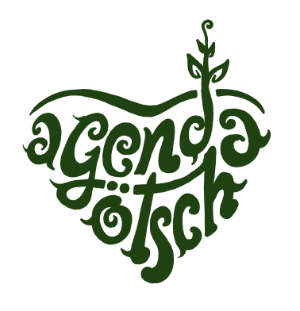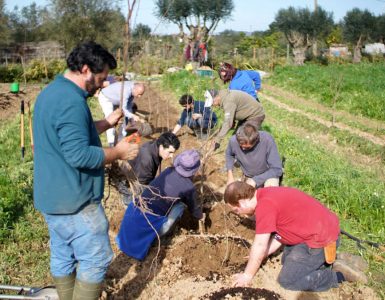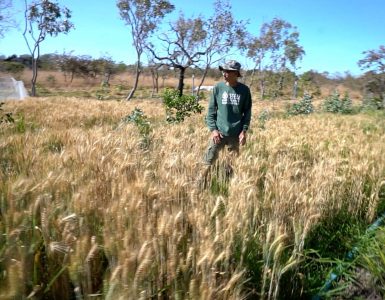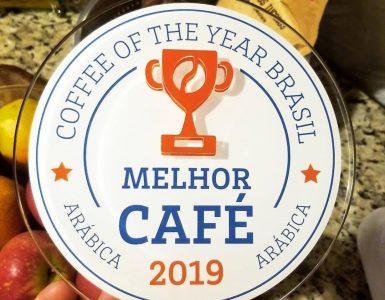Imagine the outcomes of the dialogue between these contemporary thinkers/doers who, each in their area, propose and demonstrate that new perspectives are possible and capable of transforming our perception of the man-nature relationship.
Humberto Maturana and Ximena Dávila were curious about syntropic farming and invited us for a first conversation in São Paulo. Fernando Rebello and I took this incredible opportunity to get to know them closely and to hear about their impressions regarding the points of integration between their innovative theories and the worldview of the syntropic farming.
Soon later, a team from Matriztica came to the state of Goiás (Brazil) and recorded an interview with Ernst Götsch.
The result of this dialogue is what we want to share here with you.
Reflections about COOPERATION, PARADIGM SHIFT, AGRICULTURE and LIFE suggest that here is just the beginning of a fruitful conversation.
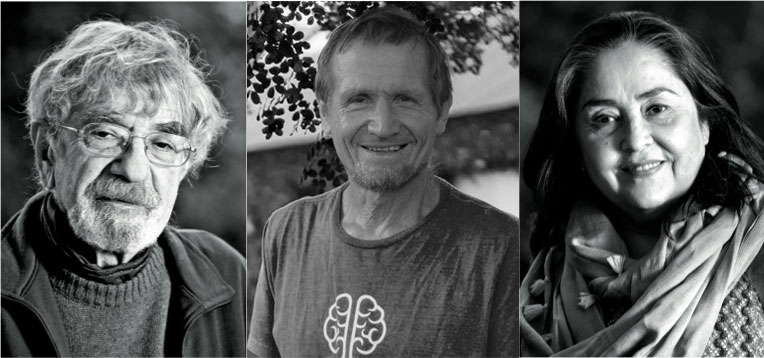
Humberto Maturana is a renowned Chilean biologist and philosopher, known mainly for the theory of autopoiesis, and also for concepts such as structural determinism and structural coupling, cultural transformation, well-being, biology of cognition, language, culture and its interference with the environment. Ximena Davila developed a vision that integrates “biology of knowledge” and “biology of love” as the basis of what he called the “Biological Matrix of Human Existence”. In close collaboration with Maturana, they co-founded the Matriztica school in Santiago de Chile more than 20 years ago, which is defined as “a Human Laboratory focused in understanding human communities and organizations during their processes of cultural transformation and integration.”
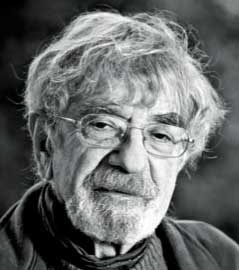
Humberto Maturana – Part 1
HUMBERTO MATURANA: “Organisms drift and maintain themselves in the process of living, but do not compete, that is the central point. So if I look and know how they relate normally, suppose the forest, then I can reproduce elements of that coherence, so that they live harmoniously among them. Then I can put the plants that I want to participate in the same process. But I have to get out of the idea of competition, because it’s a denier. So the notion of natural drift is that the history of living beings is the history of conservation of adaptation, not of adapting to, because it occurs in the present in continuous change. So the competition has to do with a denial relationship of the other and the organisms do not do that, they slide between them, what I need to understand is how that harmony has settled down over the history of the biosphere and imitate it in action if I want to be a farmer. (…) We have to consider that there isn’t a problem in competition there is a problem of coherence in the coexistence in which each body realizes its niche. The history of living beings is not based in competition, but in the transformation coherent with the conservation of life. Conservation of adaptation instead of adapting to.”
Humberto Maturana – Part 2
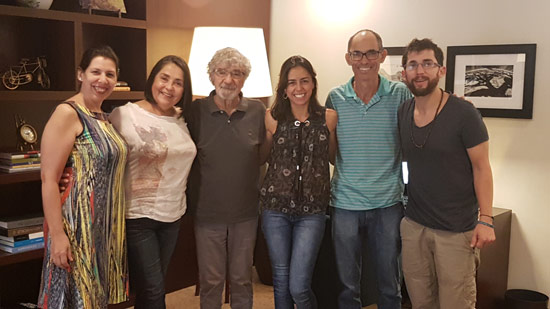
XIMENA DÁVILA: “That’s what we do in the human domain as well. Because Mr. Darwin – and we have no antagonism with him – and natural selection created an epistemological substrate for competition. This was taken to all strata of life. Think about everything that is done in medicine, everything that is done in science in general that has to do with competition. But if you observe, like Ernst, how it arises, you see that you do not compete. I always give this rustic example. After knowing you it makes more sense to me when I say that a flower does not say ‘I’m more beautiful than you’. There is no competition, they blossom, they come, just like that.”
“We have to teach HOW TO SEE that. If you look at the world from the perspective of competition, it looks different from a world that is SYSTEMICALLY IN COHERENCE with the ecological unity of the organism-niche.”
Ximena Dávila – Part 1
XIMENA DÁVILA: “Listening to what Humberto said and seeing what you do, we see that the problem is not in nature. The problem is in humans, it is in us. In Matriztica, which I co-founded with Humberto more than 20 years ago, what we do is regenerate souls so that people can connect with nature in a different way and also with each other. I see that the most difficult problem that Ernst has is not teaching, but rather how to preserve this way of living that is not only farming, is beyond that.”
Ximena Dávila – Part 2
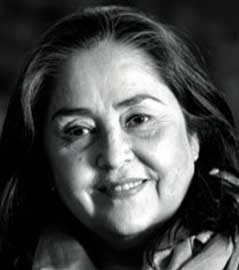
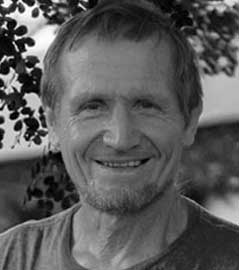
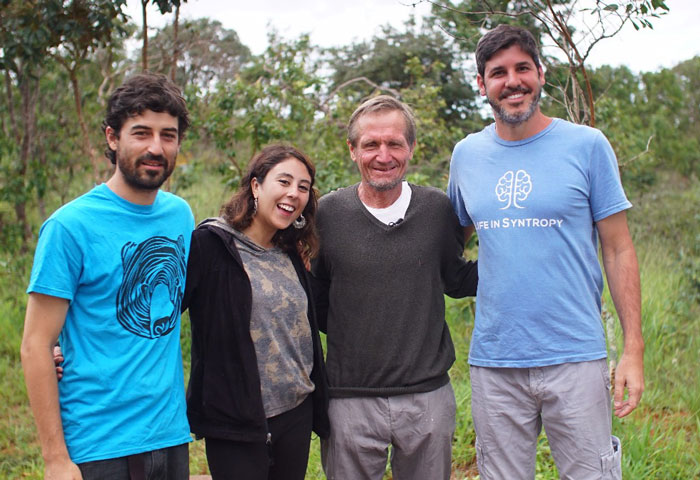
Ernst Gösch
ERNST GOTSCH: “In reality, we are part of an intelligent system and this intelligent system is a macro-organism. The macro-organism can only function conditioned that inter and intra-specific or inter and intracellular relationships are based on unconditional love and cooperation and not on cold competition. It does not work. Applying this principle (of competition), leads to the extinction of all life, leads to death, because all living beings refuse to be subjected to the principle of competition. It does not matter if it is human, plant or animal, they all refuse. And the act of refusing leads to scarcity. Scarcity leads to conflicts that lead to wars. The result of the war is collapse and the consequence is death. Whereas the subjected to the principles of unconditional love and cooperation tend to develop themselves, to produce – driven by inner pleasure. So this results in abundance, that is, abundance for all. Abundance, in turn, leads to peace. And peace brings life. There are two ways. One for death and one for life.”
We thank Sebastián, Gabriela and Francisco for helping us promote this and future dialogues.
